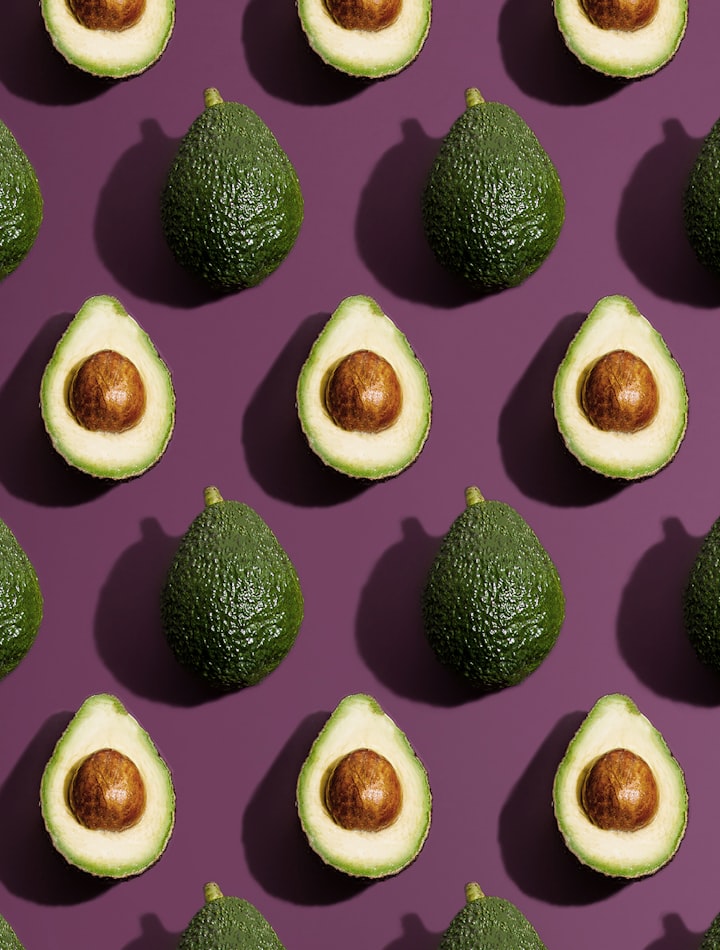Why I'm Quitting Avocados
With great sadness, I'm cancelling avocados

Millennial woman loves avocados: sounds like a headline from the Onion. But I really, really do love them. I didn’t eat avocados every day, but on the days when I didn’t, they were sitting in my fruit bowl waiting to ripen. Just thinking of them makes my mouth water; the buttery taste, the squishy green flesh, the creamy splendour of the really good ones. And yet, despite what could perhaps be described as an obsession with the little green beauty, last year I concluded that I have to give them up. Yes, with a very heavy heart, I cancelled avocados.
In January 2020, when COVID was just a twinkle in a bat’s eye, I left my job and my flat in London and headed for South America, a continent I’ve always dreamed of visiting. For the first couple of months I ambled my way around Uruguay and Argentina, happily munching avocados for lunch or dinner every day. At the end of February, I wound up in Valparaiso, a colourful coastal city not far from the capital.
One day I took a trip to the adjacent Viña del Mar, a more upmarket resort city home to one of Chile’s presidential mansions. On a walking tour through the city we crossed a large bridge where, to my surprise, I saw the wide, dusty riverbed acting as a giant car park. (Apparently it actually used to be a manmade canal, but at the time I assumed it was a natural river.) I asked the guide what had happened to it, and was shocked by the answer.
I was told that the water had been diverted to the avocado farms, which had been steadily proliferating over the years. As consumers in Europe, the US, China and Australia developed a taste for the fruit, production rose to meet the increasing demand. Chile is now one of the largest exporters of avocados in the world.

Water scarcity has long been a problem in Chile, thanks in part to its 1981 Water Code which, essentially, designated rivers economic assets controlled by the government. Since then, Chilean governments have auctioned them off to the highest bidder, with most having been sold to foreign companies who exploit them for commercial hydropower. This has left large swathes of the country without access to fresh water, in particular the region of Petorca, coincidentally (or not) a region covered in avocado plantations.
(Fun fact: in some countries, rivers have been granted legal personhood so that they have the same rights and protections as a human being, such as the Whanganui River in New Zealand.)
Villages that once had access to clean, flowing rivers for all their water needs now have water delivered by trucks organised by the authorities. It’s not enough, and residents have to prioritise how to use the scarce amount they are allotted. It’s also not clean enough, with studies having found that it contains high levels of coliform (the bacteria found in faeces). For this reason, villagers have to go and buy expensive bottled water themselves or risk falling ill.

Access to clean drinking water and sanitation is a human right. It is essential to the life of every human on the planet. This was recognised by the United Nations General Assembly back in 2010, the resolution being supported by the majority of attending countries, including Chile. Ironically for a planet with 71% of its surface covered by ocean, water scarcity is a real and growing problem. The problem is that humans need freshwater to drink and grow our food, and desalinating seawater to make it potable is incredibly expensive and environmentally damaging because the process requires huge amounts of energy. Not to mention that we have no idea the impact it could have on marine life and habitats.
In the last few decades, the world population has exploded but freshwater sources have remained the same. Along with the effects of climate change, this is leading to increased scarcity of this precious, life-giving resource. Many experts talk of inevitable water wars in the future. A 2018 study from the European Commission’s Joint Research Centre examined this issue in detail and sadly identified several areas of the world where “hydro-political issues” will likely flare up in the future. It’s already beginning in places like Chile, where international companies divert rivers for energy production, and avocado farms illegally tap rivers and pipes to irrigate their plantations, leaving many rural villages waterless and powerless.
Of course, there are many reasons for water scarcity in the Petorca region, and it cannot be blamed purely on avocados. However, the avocado is a very thirsty fruit, requiring vast amounts of water to grow. They also need lots of heat, which does not often equate to a landscape with high rainfall, so water has to be taken from other sources. In researching this issue, I’ve found all sorts of estimates for how much water it takes to grow avocados. A few years ago, people were stating 2,000 litres for a kilogram. I’ll be generous though and use the figures from the World Avocado Organisation (WAO). The WAO itself says it takes 600 litres of water to produce a kilogram of avocados. That’s about five medium avocados. That’s 120 litres (26 gallons) for ONE avocado.
The WAO released a study to say that the water usage is justifiable thanks to the huge nutritional value of avocados, and released a helpful graph to show how many litres of water are used to produce 1kg of some popular foods. Note that they’ve put themselves at the very bottom of a scale that includes rice and beef, so they’re not exactly comparing like for like. (We all know beef is bad, we’re all trying to eat less of it. Thanks, WAO.) Incidentally, I’m pretty sad to see chocolate tops the list at over 17,000 litres for 1kg: shocking, and now I suppose I’ll have to give up eating that too. Sigh.
For another point of view, investigative media and research centre Danwatch has compiled a short report to show how much water an avocado uses (they say 70 litres) compared to a tomato (5 litres), or an orange (22 litres), or even a human (50-100 litres). In very dry regions like Petorca in Chile, an avocado needs 320 litres to grow.
https://old.danwatch.dk/en/undersogelseskapitel/how-much-water-does-it-take-to-grow-an-avocado/

Aside from the water issue, there are numerous other problems associated with avocado production. In regions of Mexico and other countries, forests are being razed to make way for avocado plantations, leading to rising and uncontrolled deforestation. We’re all aware of the carbon consequences of deforestation by now, as well as other climate changes caused by the loss of forest cover.
Avocados are also grown intensively, in monoculture plantations. Scientists have long warned of the dangers of this: chiefly that growing a single type of plant in a vast monoculture strips the soils of nutrients, causing extreme degradation. Once the soil has been fully eroded, it will no longer be useable for agriculture. There are also significant concerns around habitat destruction and biodiversity loss caused by setting up enormous monoculture plantations of the “green gold”.
The trade has become so lucrative in Mexico that drug cartels have taken note and begun to extort avocado farmers, transporters and packers, as well as taken over their lands to ensure a cut of the profits. They have also murdered climate activists who are campaigning to protect the forests and species such as the Monarch butterfly.
At the end of last year, The Times ran a story about alleged human rights abuses at an avocado farm in Kenya. Men, women and children from local communities asserted that they had been abused or beaten by the farm’s security guards for passing through the land, despite the fact that many roads and paths to basic services happened to be on land the farm had since bought and planted on. One man was reported to have been beaten to death by guards for stealing the high-value avocados.
And there is one final impact to consider: the environmental cost of shipping these precious fruits to consumers hundred and thousands of miles away. Avocados are shipped to Europe by maritime shipping, an industry which produces around 3% of global carbon dioxide emissions. Although shipping by boat is one of the most carbon-efficient methods of shipping, the fuel used is still highly polluting, and as global trade increases, so does the shipping industry’s carbon footprint.

The enormous container ships slowly making their way around our planet also have huge impacts on marine animals living in the oceans. The world’s shipping routes, or “marine roads” have become extremely busy and, just like roads on land, see extensive pollution affecting the quality of the habitat of the creatures who live there. Many marine mammals such as whales and dolphins spend significant time on the surface of the oceans, leaving them vulnerable to being struck and injured by these large vessels. Moreover, large ships are filling the once quiet seas with unnatural sounds, some audible for hundreds of miles underwater. Scientists tell us that physical damage can be caused to marine life by short, loud blasts, and persistent background noise can affect their feeding habits and communications.

I never could have imagined how that day out in Viña del Mar would have affected me, and I was genuinely shocked and saddened to learn how one of my favourite foods is so damaging to the environment and the people and animals who live in it. As our world becomes more globalised, consumers are getting further away from producers, and the global supply chain becomes more complex, obscure and difficult to follow for ordinary people. I often think about the brilliant show The Good Place, and how decisions we make in today’s ultra-complicated world have myriad unintended consequences.
On the one hand, avocados are a delicious, nutritious superfood, and their trade provides jobs and income opportunities for many in the global south. Producers also invest in their local communities, providing schools and other facilities. On the other hand, they are water-intensive, leading to shortages for those who live in production areas, can have harmful environmental impacts, and their soaring value has led to human rights abuses.
I can also no longer deny the madness of buying a plastic-wrapped tropical fruit shipped 7,000 miles to a Tesco in cold and drizzly Britain, and am doing my best to eat more locally-produced seasonal foods (as we all probably should). While it may sound frivolous, it is a genuine sacrifice for me to give up this most favoured and flavoursome fruit, to do more research into the foods I'm buying and to adjust my eating habits. To make real waves for change, it's going to require all of us to make real sacrifices. And so I’m saying goodbye to avocados.
About the Creator
Jenifer Nim
I’ve got a head full of stories and a hard drive full of photos; I thought it was time to start putting them somewhere.
I haven’t written anything for many, many years. Please be kind! 🙏








Comments
There are no comments for this story
Be the first to respond and start the conversation.